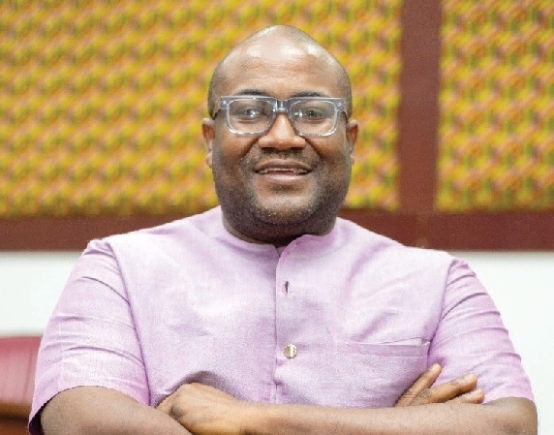
Future of businesses must be digital, green and inclusive
Ghana is at the crossroads of a transformative period. With a young population, a burgeoning middle class and more global connectedness, commercial prospects are abundant.
However, with opportunity comes responsibility to implement policies that are forward-thinking, sustainable and equitable.
The convergence of digital innovation, green business practices and inclusive economic models creates an unparalleled potential for Ghanaian businesses to succeed in a competitive global marketplace.
Businesses that fail to recognise the importance of digital, green and inclusive strategy will struggle to stay relevant. The question is no more whether Ghanaian enterprises should adopt these concepts, but rather how soon they can do so to ensure long-term success.
As a business coach who has worked extensively with start-ups, SMEs and major organisations in Ghana, I strongly think that the future of businesses in this nation must be digital, green and inclusive.
Why should future of businesses be digital?
Digital promotes efficiency and growth.
Accounting software and e-commerce platforms are examples of digital tools that can help firms become more efficient, save expenses and scale more quickly.
Digitisation can help SMEs, which account for more than 80 per cent of Ghana's private sector, fill gaps in record-keeping, customer service and inventory management. For example, a boutique in Osu that uses a digital POS system and social media marketing reaches more clients and handles inventory more effectively than one that relies on manual processes.
Access to global markets
Digital infrastructure enables access to global markets. A Tamale craftsman can sell handmade leather bags to customers in Germany via Etsy or Shopify. Technology removes geographical restrictions, allowing Ghanaian products to compete globally.
Govt policy and FinTech Momentum
Ghana is already moving towards a cashless economy with projects such as Ghana.gov, the National Digital Property Address System and Ghana Card integration. The thriving fintech market, powered by mobile money, QR codes and digital banking, provides a fertile ground for firms to expand.
Consumer expectations have shifted
Today's Ghanaian consumer is tech-savvy. They anticipate digital involvement, from online ordering to customer support via WhatsApp. Businesses that do not match these requirements risk losing relevance.
Why the future of businesses must ge green
Climate change is a business risk
Environmental deterioration is more than just an ecological worry; it is also a financial hazard. Floods in Accra cause disruptions in supply chains. Deforestation affects agriculture. Energy constraints have an impact on manufacturing. Going green is more than just about trees; it is about resilience.
Cost savings and efficiency
Green practices save operating costs. Solar energy, for example, provides a sustainable and cost-effective answer to Ghana's ongoing energy difficulties. Long-term savings can be realised through waste reduction, energy-efficient appliances and water conservation. Blue Skies Ghana has successfully integrated sustainable techniques into its operations and fruit processing, while effectively managing waste and energy consumption.
Investor and donor preferences
Globally, money is shifting to green firms. ESG (Environmental, Social and Governance) measures are widely used by investors. If your company is not green, it may be difficult to secure future finance from overseas sources.
Regulatory compliance and market advantage
As Ghana implements climate controls and green policies, businesses that prioritise environmental responsibility will earn regulatory and market advantages. From carbon emissions reporting to sustainable packaging, early adopters will be ahead of the game.
Why the future of businesses must be inclusive
Tapping into diverse talent
Inclusivity in the workplace and across gender, disability, youth and marginalised populations will unleash creativity and innovation. Women and youth-led businesses offer new views and stimulate innovation. Soronko Academy, a tech project led by women, teaches girls to code and transforms lives while contributing to the tech economy.
Global alignment
Inclusive business practices are consistent with the UN's Sustainable Development Goals (SDGs), namely Goals 5 (Gender Equality), 8 (Decent Work and Economic Growth), and 10 (Reduced Inequality). Multinationals and donors are increasingly expecting local partners to implement inclusive initiatives.
Conclusion
Ghana's business community plays a crucial role in defining the country's development trajectory. The most successful businesses in the next years will be those who embrace a Digital, Green, and Inclusive approach, not merely because it is ethically just, but also because it is strategically sound. As a business consultant, I encourage entrepreneurs, SMEs, and corporations to reconsider their plans using this lens.
Governments must provide an enabling environment with digital infrastructure, renewable financial incentives, and inclusive legislation. Educational institutions must prepare the next generation of entrepreneurs with this future in mind. And customers must support firms that share similar values.
Dr Andrews Ayiku, Lecturer/SME Industry Coach, Coordinator (MBA Impact Entrepreneurship and Innovation), University of Professional Studies Accra
IG: andy_ayiku
@AndrewsAyiku
F: Andyayiku